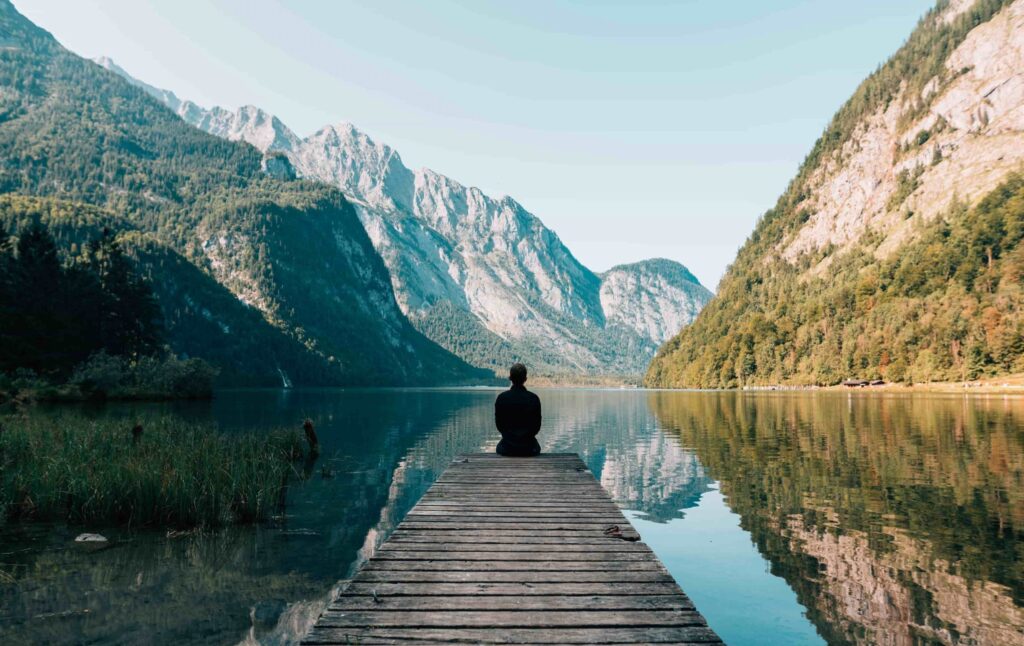
Until recently, I’ve lived most of my adult life under the spell of to-do lists. On some level, I believed that fulfilment is the fruit of busyness, target-setting and goal achievement.
After all, success and happiness depend on consistent action – right? I think this is a half-truth which misses the bigger picture.
A couple of months ago, I signed up for a weekend retreat in the countryside organised by a local Buddhist centre. Fast forward to the day before the retreat, and all sorts of internal objections start popping up:
“I have too much to do this week… a retreat will just waste a perfectly good weekend.”
“This isn’t urgent. I can always postpone it to another time.“
I was so close to bailing. But I’m glad I didn’t.
Why the resistance? I often find decisions made from a place of genuine self-love feel good in principle. It’s following through that’s the hard part. It takes courage to do something different and be someone else for a change.
Like other retreats I’ve been on, this one encouraged plenty of time for meditation, reflection, communal silence, and doing… nothing.
At first, this felt totally alien. In daily life, I spend much of my time addicted to ‘thinking’ that I became angsty when there isn’t any need for me to plot and plan.
But once my withdrawal symptoms faded, a sense of liberation emerged. Being around people in silence, with no expectation of small talk, was immensely pacifying. Rather than isolating us from each other, we agreed that the silence brought us into closer connection with one another.
Later in the retreat, I remember sitting with a cup of tea and noticing a family of ducks quietly crossing the lawn. I really saw those ducks on their little journey. It was a joy. I had tapped into a natural, nourishing place called ‘being’.
As you can imagine, heading home was tough.
The importance of being
For every contraction of the heart, there must be a phase of relaxation.
The heart must pump blood around the body, but it must also relax, totally, in order to fill with nutritious, oxygen-rich blood for the next cycle.
Contraction.
Relaxation.
When a heart is forced to overwork, it becomes hypertrophic – thick and stiffened. In this condition, you can imagine how much harder it becomes for the strained heart to relax and fill with blood.
And so it is with human beings.
Modern society fails to recognise the value of carving out time to do nothing, let alone recharging in solitude. Most of us get a pitiful amount of ‘annual leave’, time which we feel pressured to fill with yet more frenzied activity.
Such is the emphasis on states of ‘doing’ rather than ‘being’. Yet to feel most fully alive, we need a healthy balance of both.
Making time to be
After the retreat, I resolved to integrate this core lesson into my life. After all, what good is a retreat if I leave my serenity behind?
So far, I’ve implied a link between ‘doing’ and ‘output’, but there’s a paradox in there.
By ‘doing’, I really mean emotional attachment to tasks, schedules and plans. It’s possible to lie in bed, still as a log, and be under the spell of doing mode. Similarly, we can be fully connected with the stillness at the core of our being while going about our day mindfully. ‘Being’ is more a state of consciousness than a condition dependent on output.
Meditation is one route to that place, but there are other ways too. I can go for a walk without any agenda. I can sit down for a meal and take in all the flavours. I can stop at a park bench and take it all in: the clouds, the trees, the children laughing and dogs barking.
This isn’t about personal development – although self-betterment is a worthwhile aim, on a deeper level, this is about remembering that I am alive. I am life itself. Not a machine, but a living, breathing, perceiving being. No amount of busyness can take that away.